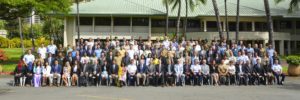
One hundred seven U.S. and international Fellows attended the Comprehensive Security Responses to Terrorism course (CSRT 16-1) July 14 to Aug. 10 at the Daniel K. Inouye Asia-Pacific Center for Security Studies. The course provides participants from the Asia-Pacific region and other select nations with the skills needed to combat terrorism and associated transnational threats.
Recent deadly attacks in Pakistan and Bangladesh, as well as Germany and France, are according to Dr. Christopher C. Harmon, “harsh reminders” why the Daniel K. Inouye Asia-Pacific Center for Security Studies conducts an extensive course in counterterrorism strategies.
Roughly four weeks long, the Comprehensive Security Responses to Terrorism program provides U.S. and international Fellows from the Asia-Pacific region and other select nations with the skills needed to combat terrorism and associated transnational threats. The Center promotes a multi-dimensional, whole-of-society approach to the issue. One hundred seven security practitioners from 48 locations took part in the latest iteration, CSRT 16-1, July 14 to Aug. 10.
“Fellows explored the challenges posed by terrorism, and – in the spirit of DKI APCSS – focused on developing solutions while considering regional actors, events and impacts,” said Harmon, adding “they learned that the struggle against terrorism is multifaceted, cutting across intellectual, moral and political arenas, and requires cooperative and creative countermeasures.”
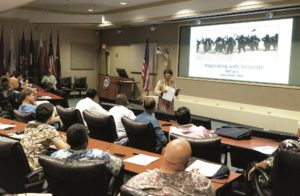
Dr. Saira Yamin leads a topical discussion on issues related to counterterrorism during the Comprehensive Security Responses to Terrorism course (CSRT 16-1) held July 14 to Aug 10 at the Daniel K. Inouye Asia-Pacific Center for Security Studies. Yamin is a DKI APCSS faculty member.
The course featured a mix of topical lectures, group interaction seminars, elective courses and an application exercise, all offered in three modules. In Module One, titled “The Problems, The Causes, the Agents,” faculty and other subject matter experts provided Fellows with deep background on the current terrorism environment.
Dr. Saira Yamin, for example, discussed related trends and contributing factors in her brief “Terrorism: The Enabling Environment.” She addressed the increasing number of terrorist acts over the last decade, especially in incidents since 2011 and the annual terror-related death rate increasing by more than 20,000 since 2006. Yamin, a DKI APCSS professor, also touched on terrorism drivers, such as economic deprivation, inequality, radicalization, and political instability, and their impacts, particularly, on vulnerable youth populations.
“All the lectures were very useful – very effective – and gave us the perspective on how the various terrorist groups across the globe are linked with one another (and) how terrorists are being financed,” said Col. Mohammed Shahedul Islam, senior instructor with the Bangladesh Defense Services Command and Staff College. “Overall the entire syllabus is comprehensive….”
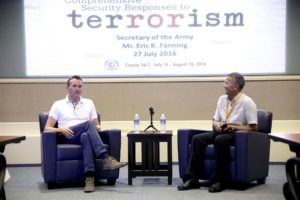
U.S. Secretary of the Army Eric Fanning spoke with Fellows attending the Comprehensive Security Responses to Terrorism course (CSRT 16-1) July 27 at the Daniel K. Inouye Asia-Pacific Center for Security Studies. DKI APCSS Deputy Director retired Brig. Gen. James Hirai moderated the discussion.
Module Two, “Toward a Comprehensive Response to Terrorism,” brought to light resources and strategies available in the fight against terrorists and transnational threats. Among lecture topics in this area was Dr. Al Oehler’s “Countering Terrorism with Economic Tools.”
Oehlers, a DKI APCSS faculty member, discussed terrorist group funding streams and available methods to track and block their financing supply chains. He highlighted both military actions against resource infrastructures, and intelligence and law enforcement operations.
In the same module, Fellows learned how to assemble a national counterterror strategy, knowledge they put to the test in a capstone exercise Aug. 8 to 9.
Maj. Chris Erlewine, a member of the course management team, said Fellows in eight teams cooperated to draft strategies for specific sub-regions, such as South Asia. They identified priorities and the elements needed for a viable counterterror plan with each team presented their results to a panel of DKI APCSS faculty members upon completion.
“The way (the exercise) was designed was outstanding. Regional countries got together to discuss what the problems are,” said Lt. Col. Fahim Sayad, with Afghanistan’s National Directorate of Security. He said the multinational approach provided a broader perspective of the challenges at hand and enabled Fellows to determine if they shared common problems or if issues were specific to particular nations.
Sayad joined Fellows in CSRT from Bangladesh, Brazil, Bulgaria, Cambodia, China, Columbia, Costa Rica, Djibouti, Dominican Republic, Egypt, France, Guyana, Honduras, India, Indonesia, Iraq, and Jordan. Kazakhstan, Kyrgyzstan, Laos, Lebanon, and Malaysia.
Fellows also came from Maldives, Mexico, Mongolia, Morocco, Nepal, New Zealand, Niger, Nigeria, Pakistan, Palestinian Authority, and Papua New Guinea, Peru, Philippines, Republic of Korea, Rwanda, Sri Lanka, Taiwan, Tajikistan, Thailand, Timor-Leste, Tunisia, Turkey, Uganda, United States, and Vietnam.
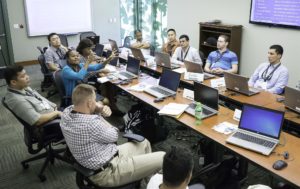
U.S. and international Fellows take part in an interactive seminar session July 19 at the Daniel K. Inouye Asia-Pacific Center for Security Studies. Seminars enabled Fellows attending the Comprehensive Security Responses to Terrorism course (CSRT 16-1) to share perspectives on
counterterror issues addressed in preceding plenary sessions.
CSRT is one of six formal courses at the APCSS. The center is a Department of Defense institute that addresses regional and global security issues. Military and civilian representatives, most from the United States and Asia-Pacific nations, participate in a comprehensive program of executive education, professional exchanges and outreach events, both in Hawaii and throughout the Asia-Pacific region.
The Center supports the U.S. Pacific Command by developing and sustaining relationships among security practitioners and national security establishments throughout the region. APCSS’ mission is to build capacities and communities of interest by educating, connecting and empowering security practitioners to advance Asia-Pacific security. It is one of the Department of Defense’s five regional security studies centers.
Since opening in 1995, the Center has had more than 10,300 alumni representing over 122 countries and territories attend APCSS courses and workshops.
-END-



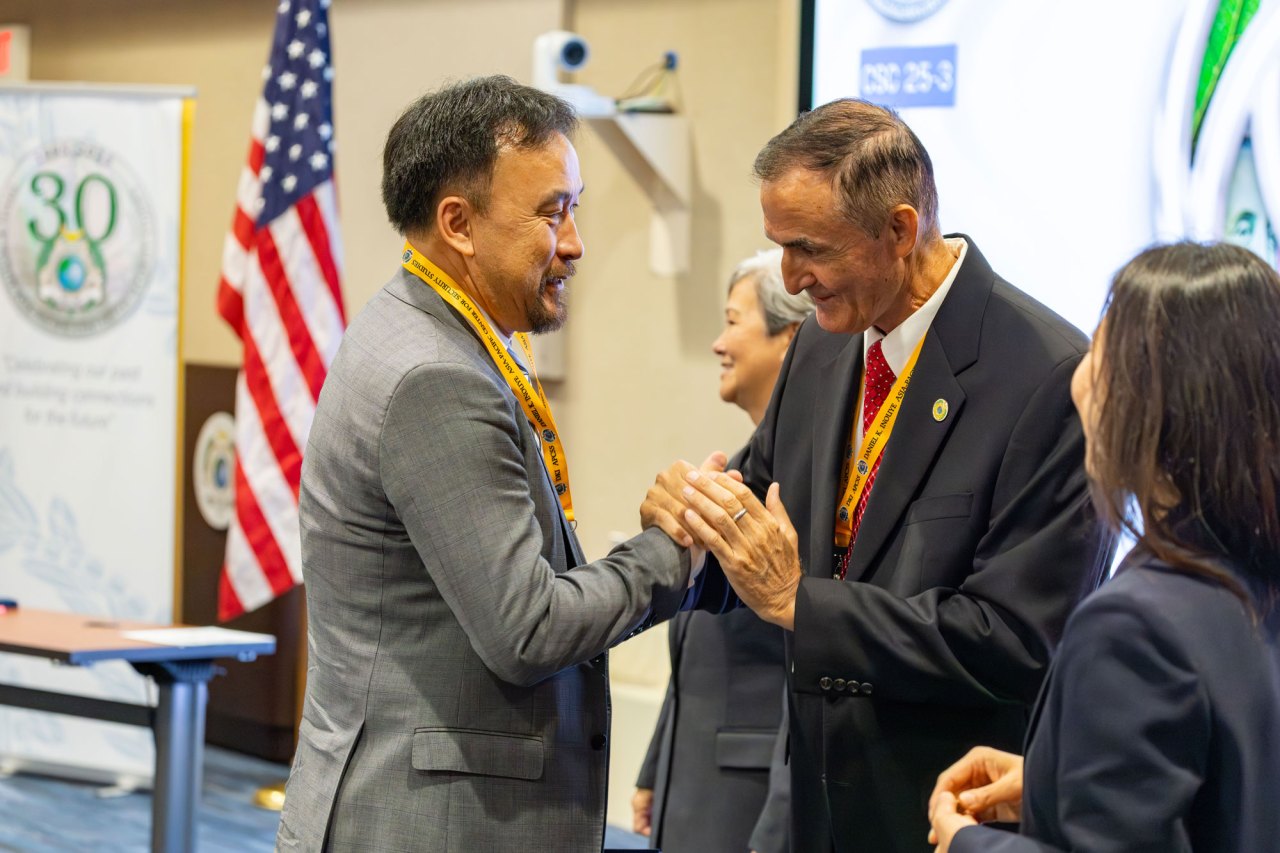
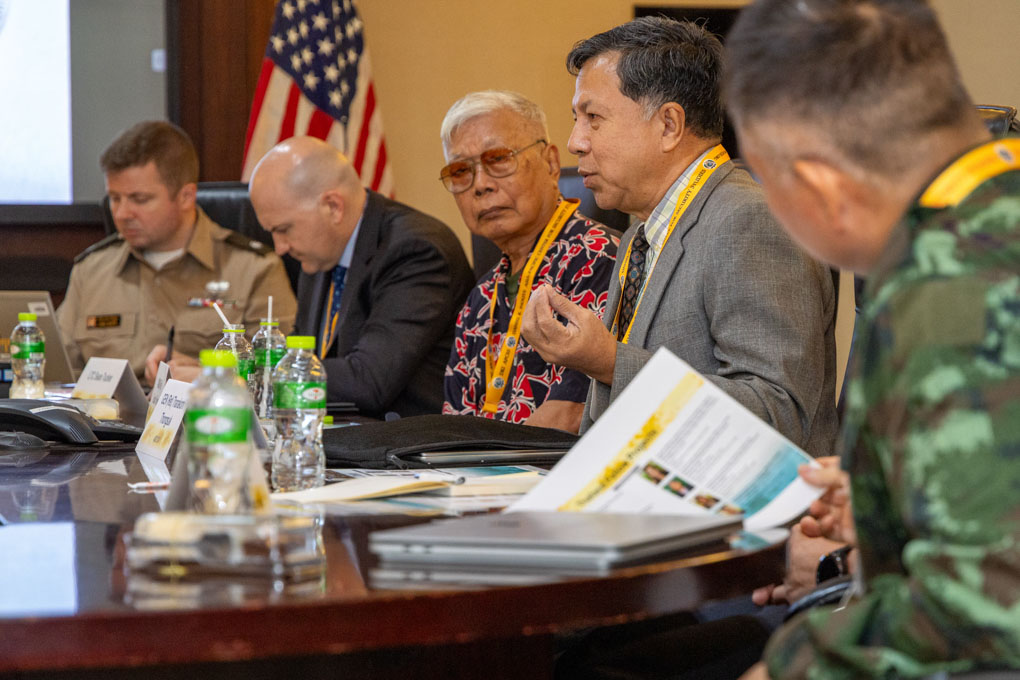
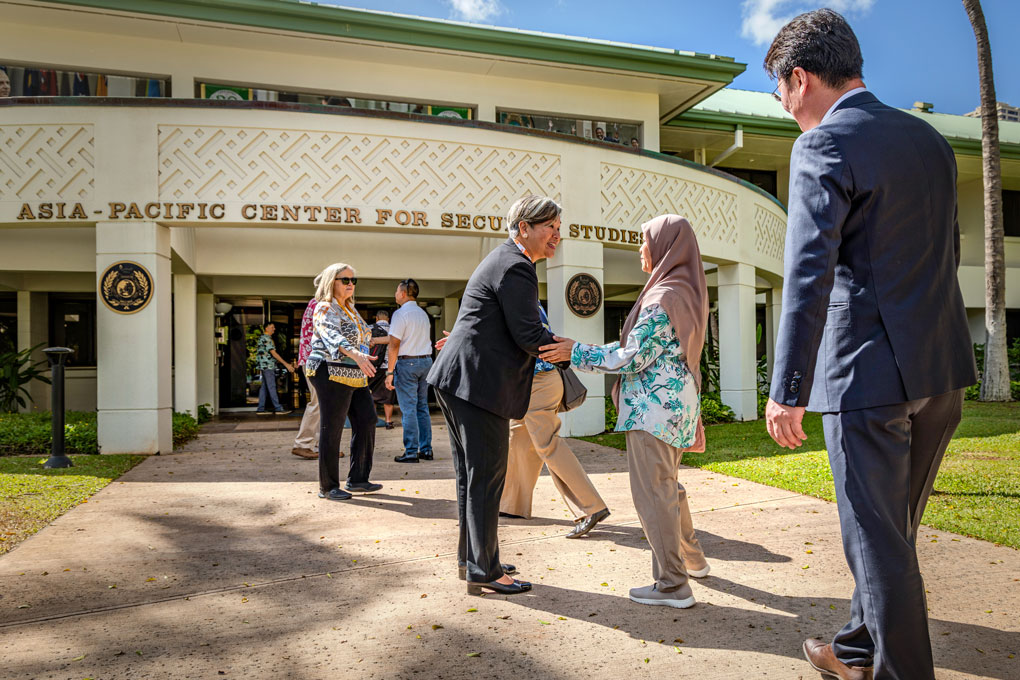




Leave A Comment